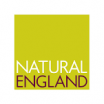UK Barcode of Life: 2023 project - DEFRA Centre of Excellence for DNA Methods.
Abstract
DNA-based methods offer a significant opportunity to monitor individual species and species assemblages where appropriate, for example those that may be difficult to monitor using traditional methods. However, there is still much development of these techniques required before they can be used in routine monitoring. Natural England has been developing the use of DNA-based methods for monitoring for several years and is a founding member of the Defra DNA Centre of Excellence, which was set up to encourage collaboration across the Defra group to progress the use of DNA based methods by tackling cross-cutting barriers. Gaps in DNA reference libraries of UK species were identified by the Defra DNA Centre of Excellence Working Group as one of the main barriers preventing the further uptake of DNA based methods for environmental species monitoring. This report details the continuation of the UK Barcode of Life (UKBOL) project and progress in barcoding priority species. There are approximately 76,000 eukaryote species recognized in the UK, the majority of which are poorly known. DNA barcoding uses a short, standardized segment of an organism's genome for identification by comparison to a reference library. A Defra funded gap analysis highlighted that almost half the known UK species lack DNA barcode data. To rectify this, a steering group was formed to initiate a UK Barcode of Life (UKBOL) project, and begin sequencing priority species. This report provides an overview of progress towards three main goals: (a) coordinating a steering group, (b) sequencing 1000 UK specimens and (c) developing the website and data portal. In the past year a further 1705 specimens of 1214 species have been processed with their data made publicly available on BOLD. The data portal was updated to combine the authoritative list of all UK species and existing data on BOLD. Additional funding provided by Natural England enabled a project to genome skim historic museum specimens on the priority list, including charophyte algae, insects and spiders, resulting in an additional 83 species being sequenced, with 59 successfully recovering the mitochondrial or plastid barcode. The lists of UKBOL and genome skin specimens analysed in 2022-2023 are presented appendices at the end of the paper.
